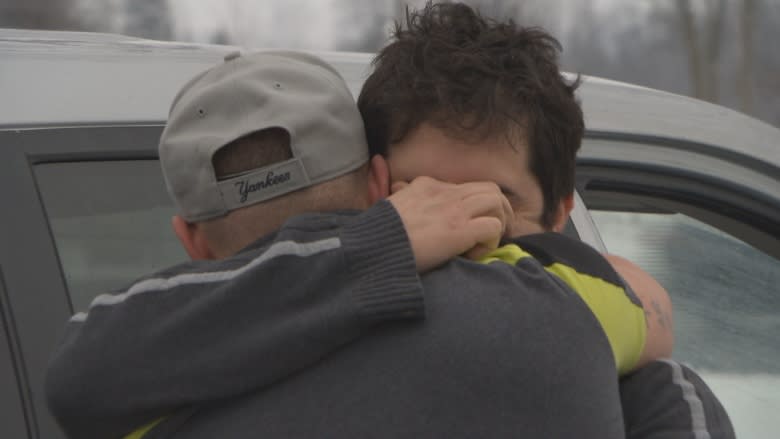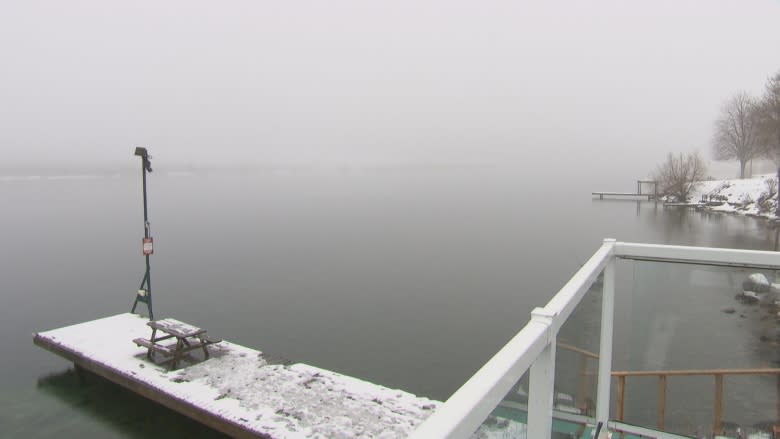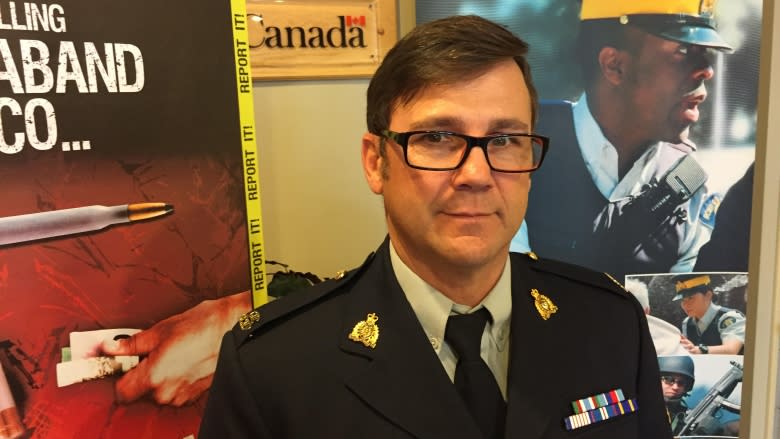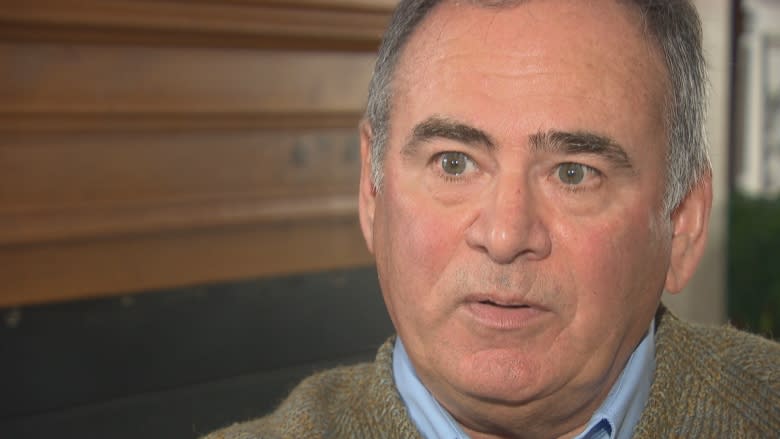Smuggled Brazilian refugee recounts boat journey to Cornwall, Ont.
The high-speed boat ride across the St. Lawrence River to Cornwall, Ont., was the last leg in a seven-hour journey "John" hoped would lead to a new life of safety in Canada.
Carrying only a backpack stuffed with a change of clothes, underwear, cologne and thousands of dollars in cash, the 32-year-old Brazilian refugee last month bet his future on a masked smuggler and strangers with unknown names.
CBC News has agreed not to disclose his identity because the refugee is a witness in an ongoing smuggling investigation spearheaded by the Canada Border Services Agency (CBSA).
John says he fled the United States after gang members from his hometown of Sobralia found him in a suburb outside Boston, where he had been working as a painter. He was an undocumented immigrant who fled extortion and gang violence in southeastern Brazil 11 years earlier.
He considered running away to another American city, but after seeing multiple videos of immigration raids he opted to cross into Canada to avoid deportation.
"Trump is at war with immigrants," John said in broken English when asked why he fled. "I hear Trump is going to deport. I can't go back to Brazil. It's dangerous there."
CBC interviewed John with and without a translator after his release from the Ottawa-Carleton Detention Centre. His Canadian guarantor was also interviewed, along with the RCMP.
Smuggler was dressed in black, masked
John left Framingham, Mass., the morning of Feb. 2, after handing over $1,500 US to a white American woman who drove him seven hours to the Canadian border near Akwesasne. The territory, dissected by the St. Lawrence River, straddles New York State, Ontario and Quebec.
There, he boarded a white motor boat operated by a smuggler on a frigid, windswept afternoon.
"He was dressed in black, had black gloves, a mask and sunglasses. Not recognizable," John recalls.
They were guided by a Canadian flag blowing in the wind on the dock of the Monte Carlo Motel in Cornwall. It took less than 10 minutes to get there.
Before the smuggler sped away, he instructed John to run up the wooden stairs to the street and hand over another $3,500 US to his partner, who was waiting for him at a nearby bus stop. Then John would be on his own.
Refugee, boat driver arrested
But before he could hand over the cash to the next smuggler, John was arrested by RCMP.
The Mounties were working with the Cornwall Regional Task Force, which consists of nine Canadian and American law enforcement agencies who are responsible for patrolling a 75-kilometre span of roads and waterways from Iroquois, Ont., to the Quebec border.
RCMP Const. Jean Juneau says officers saw the man running up the dock around 1:30 p.m. The Mounties suspected smuggling immediately because of similar cases along the city's shoreline.
"We stopped and questioned this gentlemen. He didn't have a legitimate reason to be there. He didn't have the proper paperwork and we turned him over to the Canada Border Services Agency," Juneau says.
The man is the first refugee this year arrested by RCMP in the Cornwall area. A deportation order was issued Feb. 13 but is now on hold, pending his appearance in court. The 32-year-old Brazilian will still face deportation after he appears in court, according to the CBSA. A trial date has not yet been set.
Authorities later arrested the alleged smuggler after he docked his fishing boat in Saint Regis, Que. A Cornwall Island resident is facing charges.
'There will be mass migration north'
According to statistics from the Cornwall Regional Task Force, American and Canadian border security agencies detained 77 people who were smuggled into the area last year. Forty-two of them were being transported south to the United States, and 35 were smuggled into Canada.
Prior to his retirement in 2013, former CBSA investigator Brent Lafave investigated the illegal transport of goods, weapons and people in the region. He expects human smuggling to increase this year along the St. Lawrence River given the anti-immigrant rhetoric coming from the White House.
"In my opinion, there will be mass migration north," says Lafave. "The largest number of people are moved by boat because it has the least chance of detection and you can move the greatest amount of people."
Lafave says there are many known smuggling routes operated by both local criminals and international syndicates. Often, individuals are put up in safe houses near the border before they make the illegal crossings by boat.
Despite the sophistication of some operations, Lafave says river crossings are dangerous. He has investigated cases where smugglers abandoned asylum seekers on the small islands that dot the St. Lawrence, or left them in isolated woods when they got spooked. People have also died in night-time crossings as boats crashed while trying to evade authorities.
But while Lafave believes the Canadian government should continue to crack down hard on illegal smuggling, he says it has to be balanced with sympathy for refugees.
"It's hard to say to somebody who has no possibility of a quality of life where they live, to say [to them], 'You can't have a piece of this dream that we have.'"
Released after 46 days
John was released from the Ottawa-Carleton Detention Centre March 24, after spending 46 days in jail. He took shelter from falling snow under a tree outside the gates of the jail for nearly an hour as he waited for friends to arrive from Toronto to pick him up.
His body shook as he wept during the reunion with his guarantor and a childhood friend — his only ties to Canada.
CBSA had seized his backpack and belongings, so all John had with him was a photocopy of his Brazilian passport, some court documents and a small OCDC-issued notebook in which he jotted down the names of some people he had met inside.
While in the detention centre, John slept in a one-room cell block with 30 bunk beds reserved for minimum-security inmates. John says there were two other immigration detainees housed with him. The men were from China, arrested after police noticed them driving erratically on the highway.
John was released after his guarantor, Ademir Desouza, posted a $5,000 bond. Desouza is also from Sobralia and knows John's parents. Desouza agreed to house John and ensure the refugee checks in twice a month with border officials until he gets a hearing.
If John flees, Desouza would have to pay another $25,000, but John says that won't happen. He wants to prove to a refugee hearing board that he deserves to be in Canada.
"I gotta walk straight. If I'm lucky I continue staying here."





